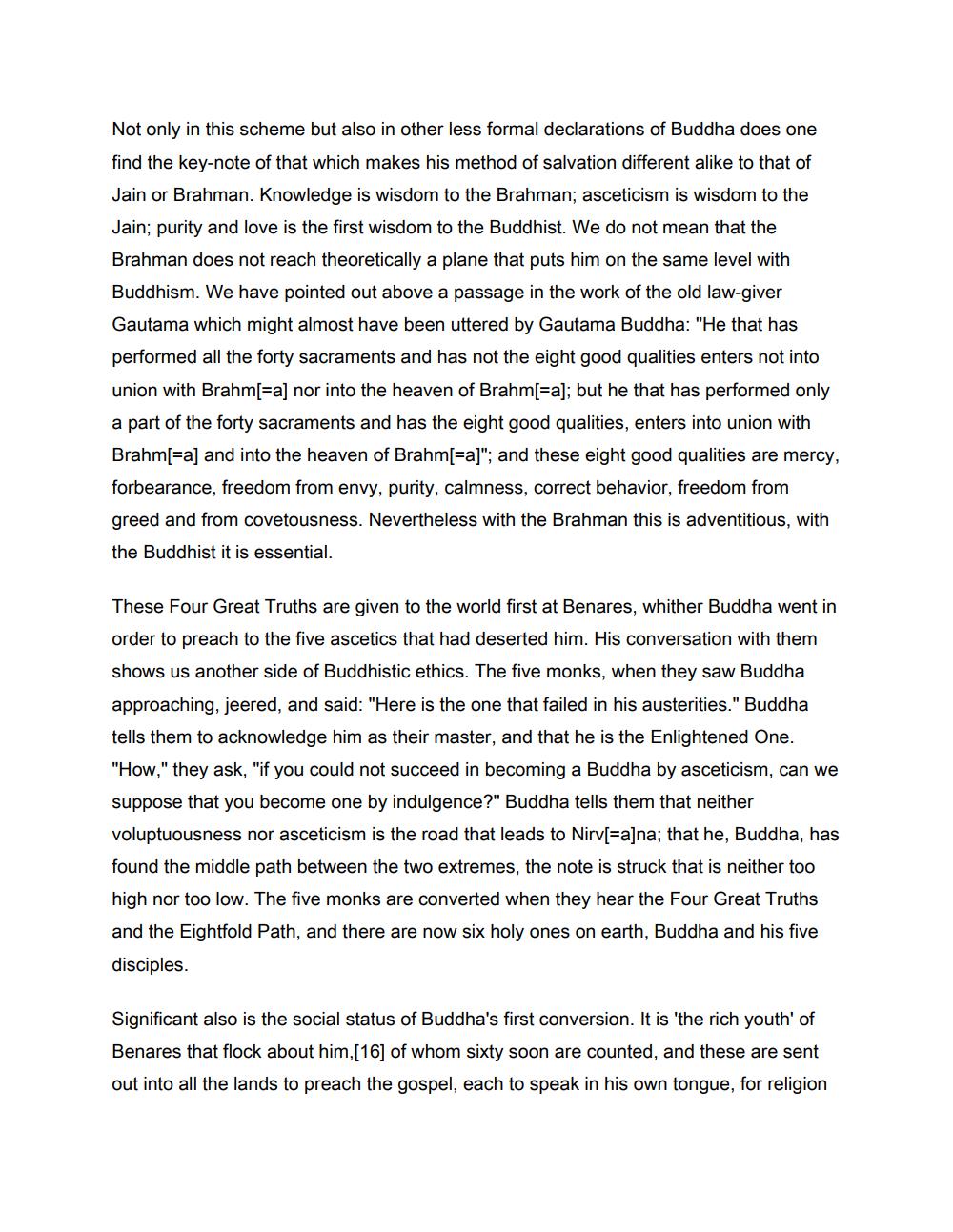________________
Not only in this scheme but also in other less formal declarations of Buddha does one find the key-note of that which makes his method of salvation different alike to that of Jain or Brahman. Knowledge is wisdom to the Brahman; asceticism is wisdom to the Jain; purity and love is the first wisdom to the Buddhist. We do not mean that the Brahman does not reach theoretically a plane that puts him on the same level with Buddhism. We have pointed out above a passage in the work of the old law-giver Gautama which might almost have been uttered by Gautama Buddha: "He that has performed all the forty sacraments and has not the eight good qualities enters not into union with Brahms=a] nor into the heaven of Brahm[=a); but he that has performed only a part of the forty sacraments and has the eight good qualities, enters into union with Brahm[=a] and into the heaven of Brahms=a]"; and these eight good qualities are mercy, forbearance, freedom from envy, purity, calmness, correct behavior, freedom from greed and from covetousness. Nevertheless with the Brahman this is adventitious, with the Buddhist it is essential.
These Four Great Truths are given to the world first at Benares, whither Buddha went in order to preach to the five ascetics that had deserted him. His conversation with them shows us another side of Buddhistic ethics. The five monks, when they saw Buddha approaching, jeered, and said: "Here is the one that failed in his austerities." Buddha tells them to acknowledge him as their master, and that he is the Enlightened One. "How," they ask, "if you could not succeed in becoming a Buddha by asceticism, can we suppose that you become one by indulgence?" Buddha tells them that neither voluptuousness nor asceticism is the road that leads to Nirv[=a]na; that he, Buddha, has found the middle path between the two extremes, the note is struck that is neither too high nor too low. The five monks are converted when they hear the Four Great Truths and the Eightfold Path, and there are now six holy ones on earth, Buddha and his five disciples.
Significant also is the social status of Buddha's first conversion. It is the rich youth' of Benares that flock about him,[16] of whom sixty soon are counted, and these are sent out into all the lands to preach the gospel, each to speak in his own tongue, for religion




